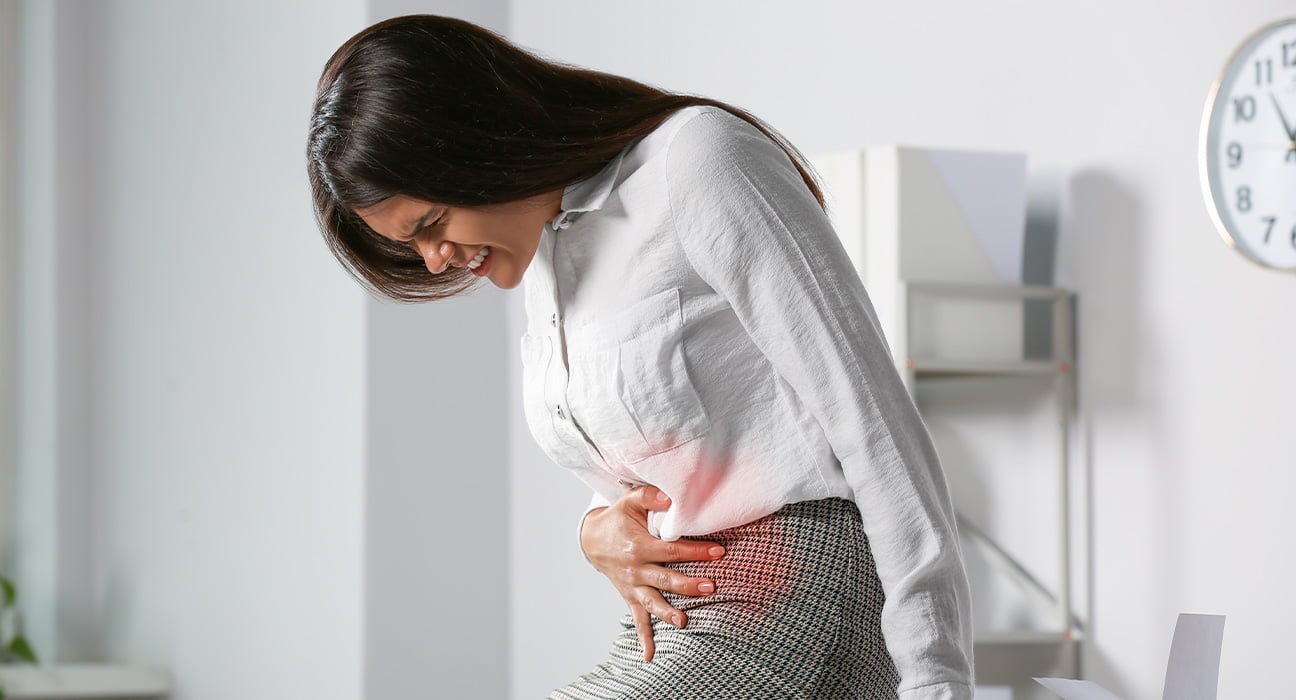Period cramps are more than simply a physical ache for a lot of women. They can cause significant disruption to their life on a monthly basis through waves of pain, exhaustion, and emotional upheaval. The psychological and emotional impacts of cramps are often overlooked in favor of discussing the physical ones. Today, we will delve into this crucial aspect: the impact of menstrual cramps on women’s mental health.
Period cramps are a monthly occurrence for the majority of women, yet they are often dismissed as little more than physical discomfort. However, the uterus isn’t the only place these pains have an impact. A woman’s mental health can be impacted and linked to them in complex and sometimes unrecognized ways.
Also Read: Premenstrual Dysphoric Disorder: Understanding its Causes, Effects, and Treatment
Mental-Physical Connection:
You could feel anxious since cramps aren’t localized; the agony might radiate all throughout your body. The “fight-or-flight” reaction exacerbates anxiety and has negative effects on brain function, such as impaired attention, memory, and decision-making. A lack of sleep, which is crucial to one’s mental health, is another consequence of the discomfort.
The shame associated with menstruation causes many women to suffer in silence, both emotionally and physically. Period issues should no longer be stigmatized. Women should have access to the support they need via honest dialogue, education, and individualized medical treatment. The emotional toll of menstrual cramps must be addressed. We can normalize these experiences, increase understanding, and advocate for stronger women’s support networks if we speak about them openly.
Also Read: The Psychology Behind Masturbation: What You Need to Know?
An Emotional Roller Coaster:
There is a wide range of sensations that might accompany period cramps. Anger, worry, and even despair are common companions throughout this period. Mood swings brought on by fluctuations in hormone levels can make women feel like emotional yo-yos. When you’re in pain, it might be difficult to motivate yourself, and you may even feel lonely and exhausted. Alterations to your brain chemistry brought on by hormonal shifts during menstruation are well-documented. Mood swings, anxiety, and depression are among possible side effects of the estrogen and progesterone drops that occur just before menstruation. Chemicals that aid in mood regulation, serotonin, and dopamine, can also get thrown off by this hormonal waltz. Mood swings might be exacerbated by this.
A person’s ability to go about their everyday life and get things done may be negatively impacted by the intensity of their cramps. Things like going to work, spending time with friends, and even doing simple tasks can become challenging when you are physically or emotionally distressed. This disruption can aggravate people’s anger and self-esteem issues, adding stress to their lives.
Also Read: Eating Disorder: Causes, Types And Symptoms
Worrying in Silence:
Many women find period pains quite difficult to deal with since they are always worried about how it will affect their everyday life. Sometimes mental health illnesses and dysmenorrhea go hand in hand, and talking about it can be tough because of the stigma that surrounds periods. If they don’t say anything, you could start to feel abandoned and alone.
Physiological and psychological impacts of menstruation symptoms may, thankfully, be managed. Developing open channels of contact with trustworthy medical experts may help with pain management and correcting underlying chemical imbalances. To better handle emotional ups and downs, one might employ mindfulness training, self-care routines, and social support.
For women, cramps in general and menstrual cramps in particular are common and expected. Their importance, resilience, and power continue to elude her. By understanding the mental and emotional effects of menstruation, we can better assist women in coping with cramps and making the most of their strengths when faced with challenges.
Women’s Mental Health:
Put aside any physical pain and think about the mental impact of menstrual cramps. By creating a space that prioritizes and promotes empathy, understanding, and support, we can enable women to take charge of their mental and physical well-being during their menstrual cycle. A mental health condition known as premenstrual dysphoric disorder (PMDD) can develop in certain women as a result of the distressing effects of menstruation cramps. Extremely debilitating physical, mental, and behavioral symptoms characterize premenstrual dysphoric disorder (PMDD), a subtype of premenstrual syndrome. It is vital to promote information and give assistance due to the enormous impact that PMDD may have on professional aspirations, interpersonal ties, and daily life.
Also Read: In a Rare Case of Double Uterus Pregnancy, Women Get Pregnant in Both
Strategies to minimize the effects:
Being cognizant of the fact that period cramps may affect people emotionally and psychologically in different ways is useful. Mindfulness, exercise, sufficient sleep, and stress reduction strategies can have a noticeable impact on mental health right away. If your symptoms are severe, you should consult a doctor and, if necessary, look into other therapy options in order to break the emotional cycle.
Period discomfort should never be something a woman has to face alone. Women can find it easier to deal with their monthly menstrual cycle if we focus on the emotional and psychological effects, encourage open dialogue, and provide practical support.
A person’s mental health might suffer greatly when menstrual cramps bring on symptoms like worry, forgetfulness, and insomnia. Period shame hinders women from getting assistance, which has detrimental effects on their mental and physical health. Mood swings, anxiety, and despair are all caused by hormonal imbalances that occur during menstruation. Developing self-care routines, practicing mindfulness, communicating honestly with healthcare practitioners, and surrounding oneself with supportive social networks can help women manage these symptoms. Period pain and premenstrual dysphoric disorder (PMDD) are real issues for women. It may assist to be aware of the emotional and mental impacts of menstruation.













Leave feedback about this